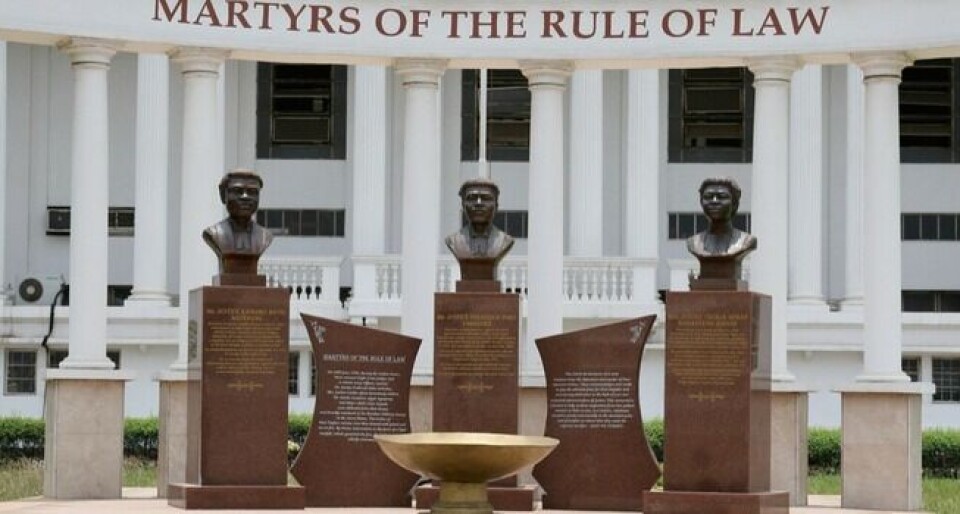Copyright : Re-publication of this article is authorised only in the following circumstances; the writer and Africa Legal are both recognised as the author and the website address www.africa-legal.com and original article link are back linked. Re-publication without both must be preauthorised by contacting editor@africa-legal.com
Prison looms for LGBTQ+ supportive attorneys

Ghana's Supreme Court has rejected a lawsuit seeking to halt the passage of an anti-LGBTQ+ bill which has sparked widespread outrage among human rights activists, writes Marian Ansah.
While Ghana currently has no specific law criminalising persons identifying as LGBTQ+, same-sex relationships fall under the scope of an old penal code established during British colonial rule, potentially subjecting violators to a three-year prison sentence. Only men are targeted under this legislation.
The controversial new bill, known as the "Promotion of Proper Human Sexual Rights and Ghanaian Family Values Bill”, takes a more stringent approach by proposing severe penalties. These include a ten-year jail sentence for individuals identifying as LGBTQ+ and their advocates. The bill criminalises support for intersex individuals, with "gender realignment" surgery being suggested as a directive. It also aims to ban the distribution of any material advocating for LGBTQ+ rights.
Dr Amanda Odoi, an academic researcher, filed the lawsuit, asserting that the bill violates Ghana's constitution and could potentially affect foreign aid to the country. However, the court ruled her arguments insufficient for an injunction, allowing the bill to advance through the parliamentary approval process. With unanimous support from all 275 members of Parliament (MPs), the bill now progresses to the consideration stage and third reading before being passed into law.
The international community has voiced strong disapproval of the bill, with Amnesty International Ghana taking a stand against the infringement on citizens' rights, particularly with regard to freedom of expression and association. Its director, Genevieve Partington raised concern about whether she, as an LGBTQ+ ally, could face imprisonment under this legislation. Victor Madrigal-Borloz, a UN human rights expert, echoes the sentiment and warns that the bill could foster "state-sponsored discrimination and violence" against the LGBTQ+ community.
The bill is sponsored by Samuel Nartey, along with eight other MPs. The push for the bill’s passage followed the opening of Ghana's first LGBTQ+ community centre in January, which ignited public protests, eventually leading to its forced closure.
The bill's potential impact on LGBTQ+ individuals in Ghana has raised alarm among lawyers and activists who contend that the legislation breaches international human rights standards, resulting in persecution and discrimination.
The ruling comes amidst a raft of recent of anti-LGBTQ+ legislation in Africa. Over half of the countries in sub-Saharan Africa have laws criminalising homosexuality, with some imposing the death penalty under Sharia law, though recent executions have not been reported, says Human Rights Watch. Uganda's recent implementation of harsher punishment for LGBTQ+ individuals, including life imprisonment for homosexuality convictions and the death penalty for "aggravated homosexuality”, has garnered significant criticism from human rights groups, including the International Bar Association's Human Rights Institute (IBAHRI), which argues that such laws divert attention from more pressing societal issues.
In contrast, some African countries are working towards decriminalising same-sex relationships. Angola, for instance, has approved a revised penal code that legalises same-sex relationships and expressly bans discrimination based on sexual orientation.
To join Africa Legal's mailing list please click here
